- Home
- Neil Gaiman
Stories: All-New Tales ngss-1 Page 28
Stories: All-New Tales ngss-1 Read online
Page 28
Anyway, she brought him home one night to have dinner with Mother and Father and me, and you could have knocked me over with a feather. Here I’d been flirting with every man who came into the bakery, while mousy little Yvonne bent her head over her books, and she’d found a man all by herself.
So Yvonne brings this man home, this shy, gawky man who spent a year trying to get up the courage to say hello, and we all sat in the parlor and looked at him. And I’ll tell you, he was handsome. He had these big eyes, like a doe, and his legs were so long, they stretched way out to the center of the room. But I watched him and Yvonne watching each other, two little mice peeping out of their holes, and I thought this boy needs a woman who will turn him into something. Someone lively and bold, not timid like Yvonne. I looked at their future together, and I saw a lifetime of quiet nights, sitting side by side, waiting to see which one of them would gather the courage to say, “Would you like milk in your tea?” Reading books together-that’s exactly the kind of thing they would have done. It made me want to yawn. This Stephen, he needed a woman who could teach him how to have fun, a woman who wasn’t afraid to speak her mind. Stephen and I were meant to be together, I could see it right away. Didn’t we deserve some happiness? And what would Yvonne do with a man like that, anyway? Yvonne had her studies, her solitary pursuits. She was always happiest on her own. And so, for the sake of us all, I set out to save Stephen from Yvonne.
It was harder than I expected. He had become quite enamored of her, for reasons I never could quite imagine. I tried all the more subtle forms of flirtation-never were more gloves dropped in a young man’s path, never were a young lady’s shoulders more often proclaimed to be chilly-but they went right over his head. And then one day, I got a little help from fate. The three of us were supposed to go to a nearby lake together for a picnic-by this point, I’d insinuated myself into most of Stephen and Yvonne’s activities-but Yvonne got sick and couldn’t go. Stephen was all ready to cancel the whole thing, but I put on a sad face and told him I’d spent all morning in the kitchen, cooking up my special deviled eggs, and why couldn’t the two of us have a nice day? And Yvonne, predictably, took my side and told us to go and have a good time. Really, that woman never knows when to stand up for herself. So Stephen and I went to the lake ourselves, and I made sure we found a nice, secluded spot. We spent the afternoon sitting in the shade of a lovely weeping willow tree, and we just had a wonderful time, talking and laughing. Later, Yvonne would ask me how I could do such a thing to her, but at the time, it didn’t feel like Yvonne had anything to do with it at all. We were falling in love, that’s all there is to it. I’d sneaked some of Father’s whiskey into the picnic basket, and neither Stephen nor I was much of a drinker, so we both got a bit tipsy, and when a sudden thunderstorm forced us to take shelter in the backseat of his car, we just did what came naturally. Our love was a force of nature, I always said.
Of course, there were tears and accusations, but a month later, when I told Stephen I was pregnant, it just seemed like it would be for the best if the two of us got married. And by the time I realized that I’d gotten my dates confused and I wasn’t pregnant at all, we were already back from our honeymoon.
For a while, Yvonne kept herself away from our door, and she and Stephen seemed a bit awkward whenever they were near each other, but I made it clear that I wouldn’t have the two of them tiptoeing around over some little doomed infatuation, and they got the picture pretty quick.
Stephen and I had a good marriage. At first, he wasn’t the kind of husband I’d hoped he would be, but with my guidance, he began to take shape. I got him to give up his poetry and his reading, and all the other silly things he liked to fill his time with, and to concentrate on his career instead. Within a few years, he’d risen through the ranks of his firm, and we had enough money to make a nice life for ourselves. Stephen lost the boyishness and softness he’d had when I married him, and it pleased me to see the hard edges he developed in their place. We tried for a while to have children, but we never could-some problem with my uterus that I’m sure you don’t want to hear about-and if I’m being honest with myself, I think it’s probably just as well. I’m not really the maternal type.
It was a few years after we got married that Mother gave me the Christmas ornaments. Mother had quite an artistic eye, and her Christmas tree was always breathtaking. Over the years, she’d amassed a beautiful collection of ornaments, some of them quite valuable, and I know Yvonne had always hoped they’d pass to her someday. I think she was quite hurt that Mother chose to give them to me, but it was fast becoming clear that her role was going to be that of maiden aunt, hovering at the edges of our family Christmases, and it just wouldn’t have made any sense for her to have them. Mother was a practical woman, and she saw this as well as I did. She knew it was the way of the world, and there was nothing you or I could do about it. But Yvonne never could see things that were plain to everybody else, and I know she took it as a slight. Honestly, it’s forty-five years later, and I don’t think she’s gotten over it yet.
That first Christmas we had the ornaments, I had a big party for the whole family. I made a beautiful ham dinner, and we all sat beneath my perfect Christmas tree and opened gifts. Stephen played the piano-now there was one hobby I approved of-and we sang carols late into the night. After everyone left, Yvonne offered to stay late and clean up a little, since I’d done all the work of the party, and I agreed to her kind offer. I went up to bed, leaving Yvonne in the kitchen and Stephen still sitting at the piano, picking out tunes.
It must have been two hours later when I woke up and discovered that Stephen wasn’t in bed with me. The lights were still on downstairs, and I crept down to the living room. Stephen and Yvonne were sitting on the couch together. They had their arms around each other, and they were looking deep into each other’s eyes, their foreheads touching. She was stroking the back of his neck and speaking to him in a low voice. In the instant before the floorboards creaked and they looked up and saw me, I heard her say two words to him. I heard her say, “Leave her.”
Then, like I said, there was the business of the floorboards, and the two of them snapped their heads around like they’d been caught stealing, which, in a way, they had.
“Get out of my house,” I roared, and for a minute I wasn’t sure which of them I was talking to. They just sat there, frozen. I plucked one of the ornaments from the tree, a little white porcelain angel, and threw it at them with the newfound strength of a woman betrayed. It hit the wall over their heads and landed on the floor, chipping one of its wings, but it didn’t break. It was made of harder stuff than I’d thought.
Stephen didn’t leave me, of course. What a thought. Say what you will about him, he took his responsibilities seriously. I think he knew he had it pretty good with me. Really, not so much changed after that; I got a new fur coat out of it, and a trump card to play in every argument we ever had. And when Yvonne came around, sniffling and saying her sorries, I welcomed her back with open arms. Friends close, enemies closer. But I made sure that she and Stephen never had a single minute alone together, not a single moment in thirty years. When Stephen was lying in his hospital bed, two hours away from dying, he asked me if he could have a few minutes to say good-bye to her alone, and you know what I said? No. I said no. Simple as that.
IT WAS THE PICTURES that got me thinking. I don’t know if you’ve ever been on a cruise-if you haven’t, don’t waste your money-but one of the many irksome things they do is take endless pictures of you and then try to sell you prints. There’s a whole hallway dedicated to displaying these souvenir masterpieces, and you have to go through and pick your face out of the crowd. It’s quite depressing, actually, the sameness of all the photos. Here’s the whole herd of cattle, walking up the gangplank; here they are stuffed into their ill-fitting evening wear, posing next to the poor captain, who has to hear the same jokes over and over again-“If you’re here, who’s driving the ship?” And it turns out you’re just like th
e rest of them, smiling for the camera and trying to look like you’re having fun. No, I wasn’t going to spend a penny on their pictures.
But with Yvonne spending every waking moment with Arthur (only her waking moments, mind you-the one wild week of her life, and she’s too much of a prude to have any fun), I found myself with some spare time. And so I took a walk down the hall of farm animals to try to pinpoint the moment when my sister’s betrayal began. Look-here are Yvonne and Arlette arriving together, looking as happy as two sisters can be. Here’s Arthur, arriving all by his lonesome. Here are Yvonne and Arlette against a splashy Caribbean backdrop; here they are against a sprinkle of fake stars. And then-here it is, right before your eyes! — Arlette standing by herself on Formal Night, dressed in her prettiest clothes, and there are Yvonne and Arthur posed together like some old married couple at their golden anniversary party. Look at them together. You can see right away they don’t match. At least, I thought, with no small amount of glee, at least the picture didn’t come out well; Arthur had turned his head at the moment the shutter snapped, so you can hardly even tell it’s him. And that’s when I noticed something odd. I looked back through all the earlier photos, and I noticed there wasn’t a single one of Arthur’s face. It would seem that for some reason he didn’t want his picture taken. And that’s when I thought, This is a man with something to hide.
I was concerned for Yvonne’s welfare, of course. You wouldn’t know it from the way she dresses or the way she decorates her home, but Yvonne has quite a bit of money. None of us ever expected it, of course-librarians barely make enough to keep themselves in books and donations to public TV stations. But there was a man who used to come into the library where she worked, a little old man who liked to come in each morning to read the paper. And I guess he was sweet on Yvonne. Not that anything ever came of it-story of Yvonne’s life, or so everyone thought before Arthur-but I guess they used to talk to each other, and she’d bend the rules for him and let him drink his coffee while he read, as long as he wasn’t too obvious and didn’t spill. She used to tell me about this man, about how he’d point out articles she might be interested in, and how after a while he started bringing a cup of coffee for her too, and I’d say, “You’re living a movie-star life, Yvonne. The thrills never stop.” But then one day, the man died in his sleep, and he left Yvonne almost five million dollars. You’d think a man with that much money could’ve afforded his own newspaper subscription, but anyway. Of course, it was a big surprise to everyone, and there were stories about Yvonne in all the papers. She told the reporters, “Oh, it won’t change my life,” just like those lottery winners who go out and buy helicopters the next day, but for her it was really true. She kept her job at the library, and she still gets her hair cut at the six-dollar place like some no-class nonmillionaire. Pathetic.
So when I saw the way Arthur kept hiding his face in all those pictures, at first I thought he just didn’t want to be seen with Yvonne and her six-dollar hair. But when I noticed that he was doing the same thing in all the earlier pictures, the pre-let’s-trample-on-Arlette-and-her-big-soft-heart pictures, I realized what was going on. It wasn’t that he didn’t want to be seen with Yvonne; he just didn’t want to be seen, period.
WHEN WE GOT HOME-never have I been so happy to put my feet on dry land-I decided I was going to find out what Arthur’s story was. It was easier than you’d think. I sat down and watched that America’s Most Wanted show, and I found out they had one of those Web sites. So I turned on the computer Yvonne gave me for my birthday last year, and I had a look around. And wouldn’t you know it, I found Arthur in an hour. His real name isn’t Arthur, it turns out. It’s Martin Edward Jaffe, and he’s wanted in connection with the disappearance of a woman he married in Denver. A wealthy woman, a whirlwind courtship. It’s such an old story it’s almost boring. Honestly, could Yvonne be any more naive? I sent away to Denver for a copy of a newspaper article that had his picture in it, and I waited for the right moment to bring it to Yvonne’s attention.
AFTER HANGING UP THE phone with Yvonne, I settle myself against the pillows, and I wait to see whether or not today is going to be the day. It takes her more than an hour to arrive, which is not a point in her favor-honestly, she only lives five minutes away-and at first, I think maybe I won’t tell her at all. Serves her right, I think, she’s digging her own grave. But when you get right down to it, I’m a big softie, and she is my only sister. Still, it’s not an easy thing to bring up; it would kill her to have to cancel the wedding at this late date, poor thing. She’s happier than I’ve seen her in years, and who am I to take that away from her? So while she’s downstairs heating up some broth for me, I take the box of Christmas ornaments out of the closet. Inside, wrapped in old newspaper, are all the foolish pieces of glass and glitter she seems to care so much about. God knows why I’ve held on to them this long. I take one out and unwrap it; it’s the little white angel with the chip in its wing. I place the angel on the newspaper clipping from Denver and wrap it up tight, then bury it deep in the box. I hear Yvonne coming up the stairs, and I quickly close the box and get back into bed.
Yvonne comes into the room with a tray of soup and crackers. I can see she’s brought saltines instead of Ritz, and I almost decide to call off the whole plan and leave her to find out about Arthur for herself. But I take a deep breath and remind myself that she’s my sister. And in any case, she’s already seen the box in the middle of the floor.
She sets the tray down on the bed and points at the box. “What’s this?” she asks, even though it’s clearly marked and she’s seen it a hundred times before. Really, she is the most infuriating creature. Arthur doesn’t know what he’s gotten himself into.
But I smile and make my voice as sugary as the icing on the tacky wedding cake she’s sure to have on Saturday. “A wedding gift,” I say. “I know how you’ve always wanted these.” She gets that look on her face that I’ve always hated, a sort of tentative, frightened joy, like a dog taking meat from a hand she knows might hit her.
“Arlette, really?” she says. She sounds like she might cry, and I feel like pinching her.
“Well, I expect I’ll be coming over to your house for Christmas from now on. It just makes sense.”
“Oh, Arlette!” she cries and throws her arms around me, nearly upsetting my bowl of broth. “That’s why you made me come over here today, isn’t it? You’re the sweetest sister a person could have!”
“You always could see right through me,” I say and bite into a saltine.
I watch as she picks the box up to carry it down to her car, chattering away about some nonsense or other. I think about the picture of Arthur hidden deep inside, his lying face wrapped around a ruined angel. She’ll find it at Christmastime, if her eyes are sharp. And if anything should happen before then, I can hardly be held accountable. I’ve done everything I can.
And if, God forbid, anything should happen before then, I’m prepared to take the situation into my own hands. I have no doubt that, with a little bit of guidance, Arthur could become the kind of husband I deserve.
Kat Howard. A LIFE IN FICTIONS
HE WROTE ME INTO A STORY AGAIN.
I told him to stop doing that, after we broke up. In fact, it was one of the reasons that we broke up. I mean, being a muse is all well and good until you actually become one.
The first time it happened, I was flattered. And it wasn’t like my normal life was so great that I was going to miss it, you know? So getting pulled into that world-a world he had written just for me, where I was the everything, the unattainable, the ideal-it was pretty powerful.
When he finished the story, and I came back to the real world, the first thing I did was screw him until my thighs ached. It was our first time together. He said it was the best sex of his life.
When I asked him if someone had ever fallen into a story that he had written before, he said not that he knew of. Oh, sure, he had based characters on people he knew, stolen little bits of their liv
es. A gesture, a phrase, a particular color of eye or way of walking. The petty thievery all writers commit.
I asked what he had done differently this time.
“I was falling in love with you, I guess. You were all I could think of. So when I wrote Marah, there you were in my head. Always.”
I hadn’t fallen into the story right away, and I didn’t know what happened in the parts where Marah didn’t appear. Reading the finished draft was this weird mix of déjà vu and mystery.
Apparently inspired by my real-world sexual abandon, the next thing he wrote me into was an erotic novella. Ali was a great deal more flexible than I was, both physically and in her gender preferences.
I really enjoyed that story, but one night I tried something in bed that Ali thought was fun but that he thought was beyond kinky. After that, the only sex scenes he wrote me into involved oral sex.
Men can be so predictable, even when they are literary geniuses.
Maybe especially then.
The next time he wrote me into something, I lost my job. It was a novel, what he was working on then, and when he was writing Nora, I would just disappear from my life as soon as he picked up his pen. For days, or even weeks at a time, when the writing was going well.

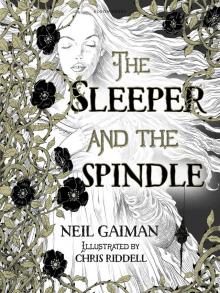 The Sleeper and the Spindle
The Sleeper and the Spindle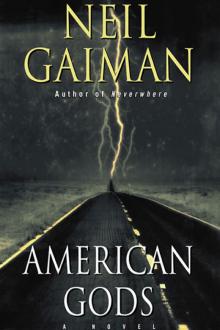 American Gods
American Gods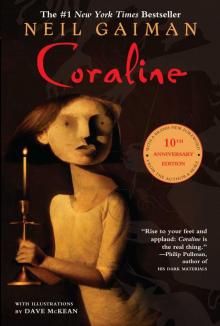 Coraline
Coraline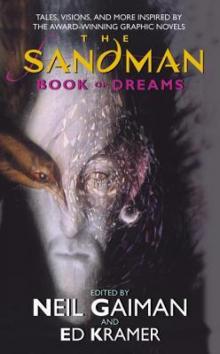 The Sandman: Book of Dreams
The Sandman: Book of Dreams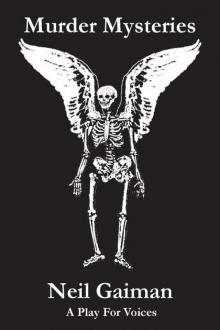 Murder Mysteries
Murder Mysteries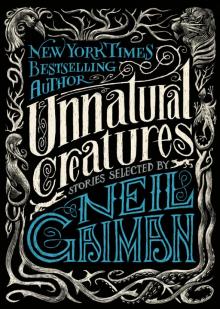 Unnatural Creatures
Unnatural Creatures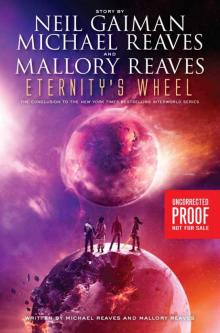 Eternity's Wheel
Eternity's Wheel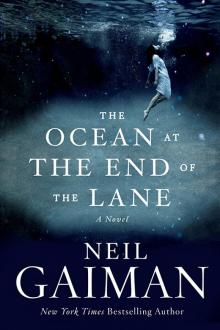 The Ocean at the End of the Lane
The Ocean at the End of the Lane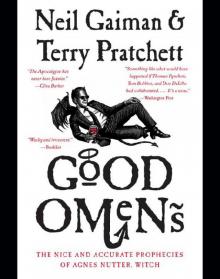 Good Omens
Good Omens Stardust
Stardust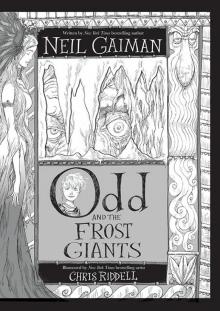 Odd and the Frost Giants
Odd and the Frost Giants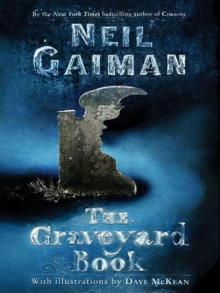 The Graveyard Book
The Graveyard Book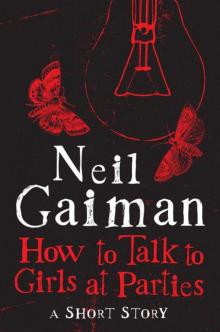 How to Talk to Girls at Parties
How to Talk to Girls at Parties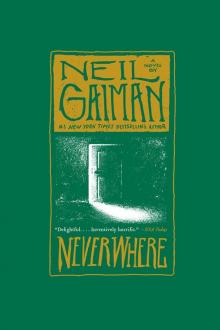 Neverwhere
Neverwhere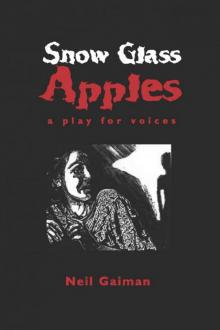 Snow, Glass, Apples
Snow, Glass, Apples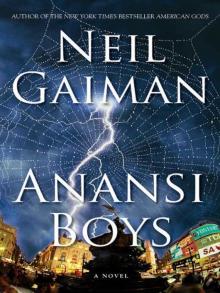 Anansi Boys
Anansi Boys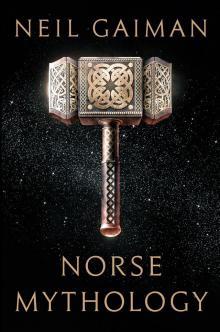 Norse Mythology
Norse Mythology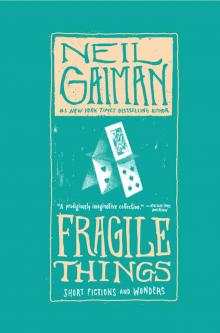 Fragile Things: Short Fictions and Wonders
Fragile Things: Short Fictions and Wonders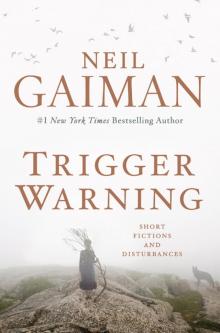 Trigger Warning: Short Fictions and Disturbances
Trigger Warning: Short Fictions and Disturbances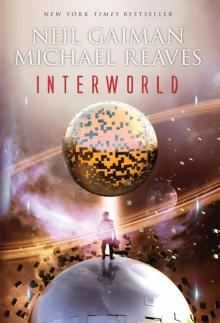 InterWorld
InterWorld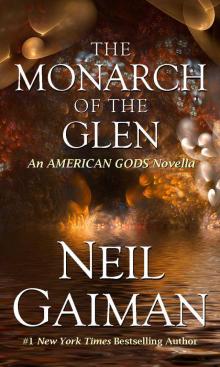 The Monarch of the Glen
The Monarch of the Glen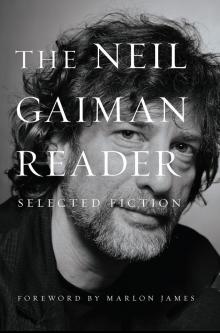 The Neil Gaiman Reader
The Neil Gaiman Reader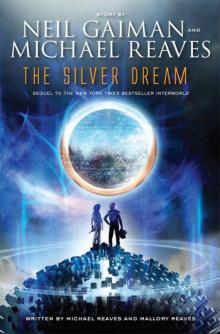 The Silver Dream
The Silver Dream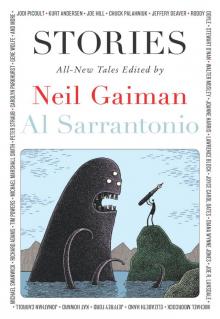 Stories
Stories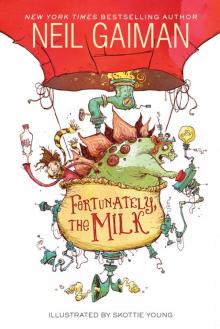 Fortunately, the Milk
Fortunately, the Milk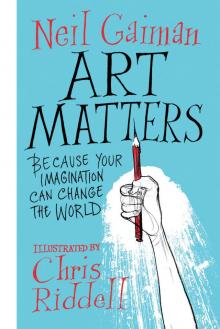 Art Matters
Art Matters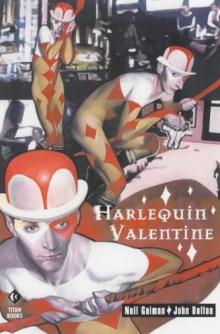 Harlequin Valentine
Harlequin Valentine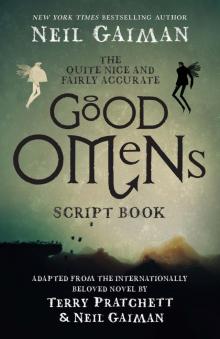 The Quite Nice and Fairly Accurate Good Omens Script Book
The Quite Nice and Fairly Accurate Good Omens Script Book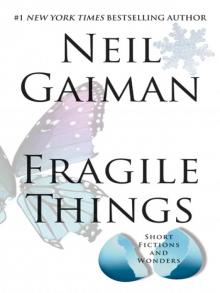 Fragile Things
Fragile Things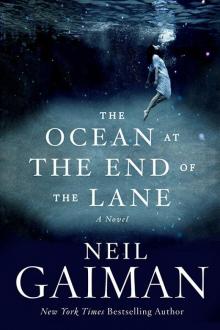 The Ocean at the End of the Lane: A Novel
The Ocean at the End of the Lane: A Novel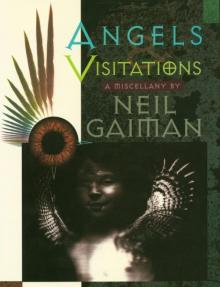 Angels and Visitations
Angels and Visitations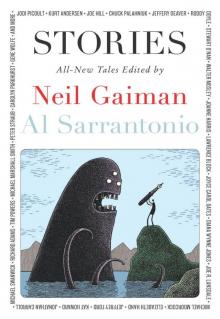 Stories: All-New Tales ngss-1
Stories: All-New Tales ngss-1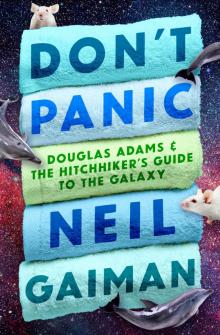 Don't Panic
Don't Panic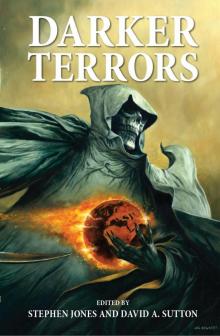 Darker Terrors
Darker Terrors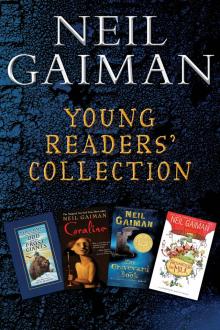 Neil Gaiman Young Readers' Collection
Neil Gaiman Young Readers' Collection A Study In Emerald
A Study In Emerald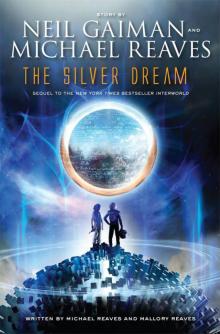 The Silver Dream: An InterWorld Novel
The Silver Dream: An InterWorld Novel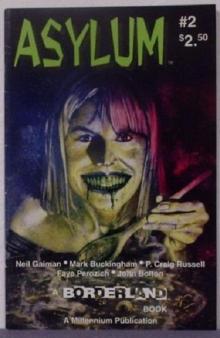 Feeders and Eaters
Feeders and Eaters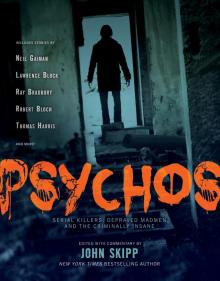 Psychos
Psychos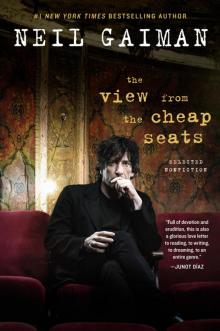 The View from the Cheap Seats
The View from the Cheap Seats Trigger Warning
Trigger Warning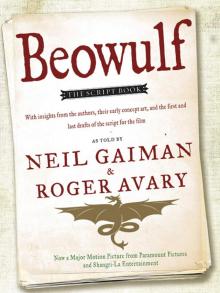 Beowulf
Beowulf Nessun Dove
Nessun Dove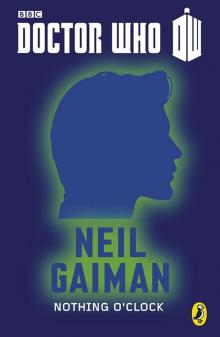 Doctor Who: Nothing O'Clock: Eleventh Doctor: 50th Anniversary
Doctor Who: Nothing O'Clock: Eleventh Doctor: 50th Anniversary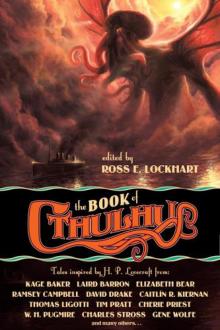 The Book of Cthulhu
The Book of Cthulhu